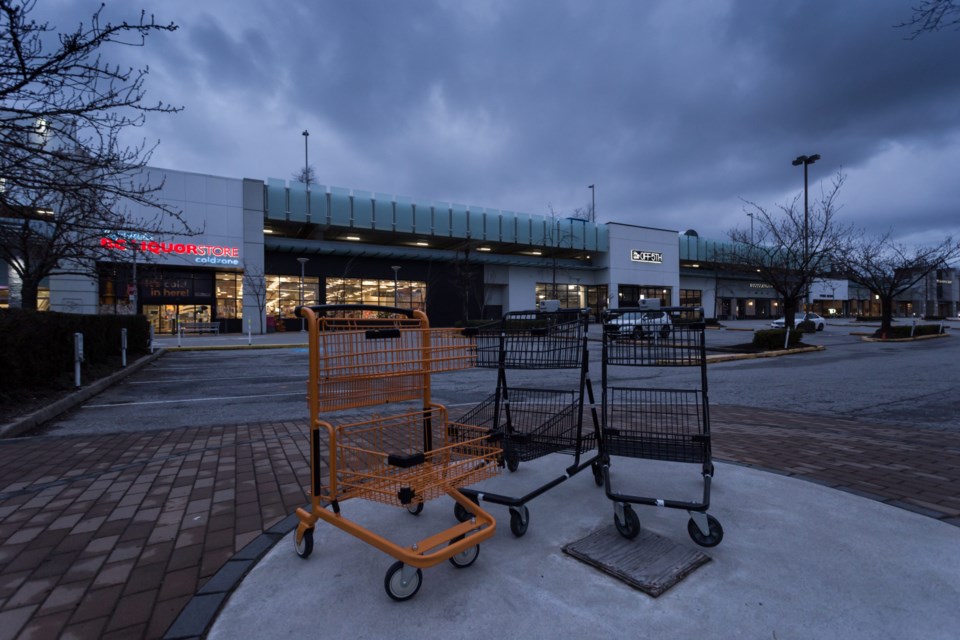We’re not out of the woods yet – not even close. But as much of the world locks down to contain COVID-19, is it too soon to see just how deep the woods are?
Last week, the Business Council of British Columbia released their preliminary estimates of the impact of the pandemic on BC’s economy in 2020.
The numbers are stark and sobering. The report outlines two different scenarios: one where the economy contracts by 7.3%; the second, by more than 11%.
For comparison, the 2009 financial crisis and recession caused a contraction of 2.6%. After the dust settled in 1982, the provincial economy had shrunk by 6.5%.
“Does it seem plausible that this recession will be twice as nasty – or more than twice as nasty – as 2009?” asks Ken Peacock, BCBC chief economist and vice president.
“I keep coming back to yes.”
A 7.3% decline would mean $18.3 billion less in total economic output – and $45 billion under the second scenario.
Obviously bad – what does that exactly mean for the average person? It’s extraordinarily hard to generalize, and mostly depends on which sector you’re working in. Tourism and the airline industry are being devastated, but a household with a teacher and police officer (for example) will continue being paid. Other sectors, such as telecommunications and ones connected to the grocery supply chain, might even see modest increases.
Comparisons with recessions in 2009, 1981-2, and of course the Great Depression of the 1930s are inevitable, but as Peacock points out, you can only take the comparisons so far:
“It’s very, very different. What’s going on now is a stopping – almost a halting – of demand.”
As the report notes, deliberately shuttering large segments of the provincial economy is unprecedented – but because this can’t possibly not cause a recession, previous recessions are the only basis of comparison possible.
Peacock went through the economy, industry by industry, took what information was available, and modelled projections.
Until quite recently, some individuals and organizations were still inexplicably projecting the pandemic wouldn’t do much economic damage – but evidence already available points in the polar opposite direction. In a normal week, some 45,000 Canadians make a claim for unemployment benefits. In just one week (March 16 to 22), more than 927,000 Canadians lost their jobs.
“A 2% recession means 7 to 8% unemployment,” says Peacock, “We’re going to have much more than that, unfortunately.”
Some of the fallout is difficult to predict. Take the service industry. If Dr. Bonnie Henry and her colleagues across the country give the all-clear on June 1st (or July 1st, or August 1st…), how long does it take before crowds come back? How long before people feel comfortable enough – and businesses can bank on – attending something like a concert, or Canucks game? How long until families feel safe booking a trip? Or borrowing more money to buy a car?
“It’s hard to model explicitly,” says Peacock. “I don’t think it can snap back, but I think people are going to be (cautious). I think you’ll see businesses reopen in stages, with some physical distancing; if your capacity is 100, you’re allowed 50, and so on.”
“We don’t really know how consumers will respond.”
The other wild card is the situation in the United States, which seems – not to put too fine a point on it – somewhat further behind when it comes to confronting and containing COVID-19. No matter what Canadian health officials and frontline workers accomplish, if it also doesn’t get under control stateside, it will have dire economic consequences for BC.
“If the US remains locked down or in some sort of turmoil longer than Canada, the border could be closed well into the summer. In the second scenario, I envisioned it being closed into the fourth quarter,” says Peacock.
An increasingly interconnected regional and global economy is one of the reasons the COVID-19 recession will be more severe than 2009 or 1981-2.
“Countries are all on different timelines and trajectories trying to contain it, so supply chains are going to continue to be interrupted. The risk of reinfections will prompt governments to be very cautious about opening up travel too soon, and relaxing social distancing restrictions too soon as well.”
No crystal ball, uncharted waters, flying blind – pick your metaphor. Either way, the climb back out will be long and hard.
Maclean Kay is Editor-in-Chief of The Orca
SWIM ON:
- Last week, Maclean Kay looked at very different - and slightly more optimistic - modelling, and the effect of social distancing on containing COVID-19.
- Blair King's experience dealing with another airborne killer - asbestos - leads him to believe health officials are correct in advising against the general, uninfected public from wearing masks.
- Your daily dose of non-Coronavirus content: The Supreme Court ruling in the Delgamuukw case is (or rather, was) much-cited, but as former attorney general Suzanne Anton points out, it's not quite so often understood.



